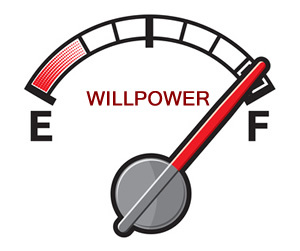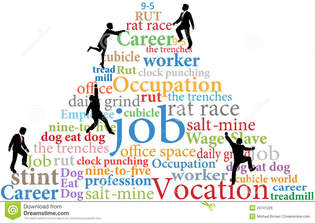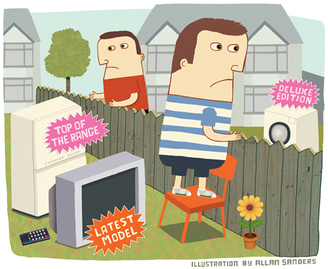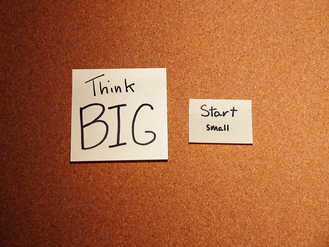 In last week’s article we talked about manufacturing and writing as paths to financial freedom. In this week’s article I’ll finalise with vlogging and creating. Vlogging Vlogging is video logging, basically creating videos and uploading them to the internet. You can inspire people more powerfully through vlogs than through blogs (text-based web logs). Most of us lack confidence in front of the camera. We are a shy, timid bunch and the prospect of going in front of the camera invariably makes us think of the public shame! Everyone feels embarrassed about doing videos the first time. I was too although I am lucky in that I don't care about getting embarrassed. I am secure in the knowledge that if someone laughs at me it doesn’t matter or I will get the last laugh, sooner or later! I posted my first ever video to YouTube on 3 January 2011. The video was entitled Chichewa 101.01. I expected no one to ever watch the video and was happy with that because I just wanted to teach my husband the language. Uploading to the internet was simply the best way to remain accountable to our planned schedule. What turned out to be “just for fun” ended up being a sensation resulting in a book that has been very well reviewed on Amazon and is regularly purchased. The initial Chichewa 101.01 video has been watched over 12,000 times to-date and continues to make me money through YouTube ads. Oh yes, did I forget to mention that Google (the owner of YouTube) pays you when your videos gets lots of views? If I wanted to, I could create an online video library and charge subscribers a monthly subscription to watch the videos. I just might do that but I'm too busy working on other projects right now. Perhaps that will be a 2015 project. What sort of videos could you create? My experience with Chichewa 101 showed me that you can monetize anything that you know. If you don't know something then you can learn it and create videos as you learn, that's how my natural hair brand Neno Natural was born. It is now a global brand with a majority US following. I don't own a warehouse; I use third party services to fulfill my orders. I don't own a factory, I used third-party manufacturers to get my products made. My business is set up such that I can be anywhere in the world provided that place has a reliable internet connection. The whole basis of my business is content production. I write, (I write a lot) and despite all my misgivings I produce videos. Sometimes I can't rewatch my videos without cringing but I continue to produce them nonetheless. Then I syndicate all my content – writing, videos, podcasts – through the social networks to the world. Content Production The world is everyone's oyster. The only thing that stands between you and financial freedom is content production. Produce more than you consume and the treasures of the world will reveal themselves to you. If you are an artist or someone that creates beautiful things with your hands, showcase them through blogs and vlogs. You have no idea who will discover you and want to hire you. That is how the world works now: people use the internet to find things that they like and if you are not there you aren’t giving the world the opportunity to discover your talent and essentially fund your path to financial freedom. It has been a great pleasure writing for you, and I thank the Editor for the opportunity. I will always treasure the 18-month experience and I look forward to producing one-off articles for the FeMail team as I continue mapping my way to financial freedom. “A big part of financial freedom is having your heart and mind free from worry about the what-ifs of life.” – Suze Orman For inspirational quotes follow @Getting2Wealthy on twitter.
0 Comments
 Dear reader, this is my penultimate weekly article writing for you. Unfortunately success with my business means that I have more demands on my time and have to give up some activities even those that I thoroughly enjoy such as this column. Based on a poll on my Facebook page a regular reader suggested I write an article summarizing all the ways in which one can attain financial freedom. This as you know is not a small topic and as such requires two articles. First, let's define financial freedom so we are all on the same page. If you can stop working today and have enough income coming through from all your investments to sustain your lifestyle – you have financial freedom. I would add that if you can attain that with a mere half-day of work per week then you are pretty financially free also! Most people will never attain this. They will struggle daily until the day they die. It is sad but unfortunately true. The difference between enjoying financial freedom and remaining a life-long member of the rat race is strategy coupled with action. I know some are thinking this is completely unrealistic for the poorest of the poor but I personally do not believe that to be true. Poverty makes it a lot more challenging, yes, but people who have worked their way out of poverty show it is more than possible. What makes it less possible is that many people limit their thinking to their current circumstances. They can’t conceive a life different to what they have and it’s a fact of life that if you can’t conceive it in your mind, you almost certainly will not achieve it in reality. We now live in a world where you can make money from a wide variety of activities. A lot of Malawians remain stuck thinking that just because they live in Malawi they can only make a living or grow a business based on the local market. When we have ideas they are usually agricultural based because that is the resource that we see as being readily available. This is natural, however, in this article I will dare to allow you to think that the world market is your oyster. I dare you to think that a girl or guy in Turkey, Russia, Indonesia or Australia is out there waiting to buy your product. So what businesses or avenues can you use as a platform toward financial freedom? Manufacturing Make something. Something for us to eat, wear, be entertained by or look at. It's a lot cheaper than you think to conceive an idea and make it a reality. If it's a machine that you need then China and India are waiting to make the machine for you. In addition to the internet hosting the likes of Facebook and Twitter you will also find e-commerce sites for people that want to source products, for example alibaba.com. How many times in the last year have you paid alibaba.com a visit and toyed around with either buying a machine or getting a ready-made product manufactured and sent to you? Something for you to do tonight: go to alibaba.com and start surfing the site. Look at all the different machinery and products you can procure; contact a few manufacturers for pricing. It costs you nothing and it will help you to start thinking about your possibilities. Writing Writing on its own does not make you rich. The authority that you gain from writing prolifically is what leads to wealth. Even if you are covering a topic that has been covered a multitude of times by other writers, they weren't you. You can put your own spin on anything. However, what sort of writing gets a large following? Common interest topics: beauty, hair, makeup, fashion, sex, life stories. I know many of us may not consider these genres as “professional”. Perhaps mummy or daddy always wanted you to do law, medicine, economics or some other such thing. Well, if it’s your parents or society at large you would like to impress then you should go for a more esoteric topic. There will definitely be an audience for your writing but a much smaller one. The smart thing to do would be to put a common interest spin on a “professional” topic. For instance, write about how people get screwed over in divorce proceedings to develop a following that buys your services as a lawyer. If you can digest the legalese of a divorce case into a sensational, easy-to-read story, you are on to a winner. Write about hospital horrors you know about to attract patients or buyers for a medical product that you sell. The writing creates authority and people like to purchase from authority figures. To get a serious following quickly write at least six times a week. And continue writing that much for at least 12 months. Syndicate your writing via the social networks. I will discuss two more avenues to financial freedom in next week’s edition, my final article. “The interesting thing is: if you do it for love, the money comes anyway” – Richard St. John For inspirational quotes follow @Getting2Wealthy on twitter.  Why is that some people can achieve so much success and get so much done in so little time? Two psychology experiments give us some insight, “The Marshmallow experiment” by Clinical Psychologist, Walter Mischel. In the late 1960s and early 1970s Walter Mischel carried out experiments on pre-schoolers in which they were awarded: · Either one treat now · Or two treats when the tester returned after a 15 minute delay The treats were left right in front of the kids during the tester’s absence. Some were barely able to wait a couple of minutes before they gobbled up the treat whilst others were able to wait considerably longer. The kids involved in the experiment were tracked into adolescence and adulthood and their life outcomes were startling. Those that managed to wait longer were more successful in many areas of their lives including: · Exam scores · Educational attainment · Weight as measured by Body Mass Index They were less likely to have been involved in drug use and overall had more successful lives. What does this mean for your business and your life? There are going to be distractions, many of them, and your ability to tune them out and focus on your priorities will impact your results. Commit to specific SMART goals and work towards them. The more self-control you exercise, the more consistent your work and the sooner you will see results. Importantly, are you teaching your children self-control and how to exercise their willpower. You may think you’re showing them love by pandering to their every whim but you’re really only hampering their long-term success. “The Memorizing Experiment” by Marketing Professor, Baba Shiv. In a 1999 experiment Baba Shiv carried out a simple experiment on 165 graduate students. Half the students were given a 2-digit number to memorize and half a 7-digit number. The students were then asked to walk to another room where they would recite the number. En route they were offered a treat as a thank you, either a fruit salad or a chocolate cake. The results were startling: students who were holding a 7-digit number in their head were 50% more likely to accept the chocolate cake. Their thinking power was being used up by trying to remember the number so they were less likely to choose the healthier snack. If you think about your brain as having two decision-making areas - a rational thinking brain and an emotional brain - then it makes sense that if your rational centre is busy your emotional centre will take over. Understanding Willpower Whilst willpower is an extremely powerful tool everyone has only a limited supply. It will run out at some point. This point was explained best by a consumer psychologist called Kathleen Vohs who said: “Willpower is like gas in your car. When you resist something tempting, you use some up. The more you resist, the emptier your tank gets, until you run out of gas.” What does this mean for your business and your life? Your willpower can be drained by unrelated exercises. Let’s say you’re trying to build a business whilst you’re still in a regular job and you’re dieting at the same time. If you have been resisting food all day by the time you get home your willpower to work on your business may be low. Instead of the three hours of work you have committed to, you might find yourself completely unable to do more than a good 45 minutes. In summary, the secrets to success are a lot simpler than you might think. Refining your character traits such as willpower, self-control and the formation of good habits plays a much more important role than you realize in your financial and life success. “The will to win is not nearly as important as the will to prepare to win.” Bobby Knight For inspirational quotes follow @Getting2Wealthy on twitter.  This is a topic of many gossip sessions but it’s time to bring it out in the open. Women in Malawi have been doing increasingly well in the education system. We have taken education very seriously so much so that now it is not at all uncommon to find a woman making at least as much as her husband. In some cases the wife or girlfriend’s income outstrips her partner’s. There is nothing innately wrong with this except that many men still feel extremely insecure about the changing dynamics of household finances. Income used to be most men’s only contribution therefore it is no wonder that they feel that their impact is diminished. Supported Men In some cases women are fully supporting a man who does not do very much at all. You and I both know of at least one or two cases in which the woman pays all the bills and goes to work whilst her boyfriend drives her car around town at his pleasure. Unfortunately, some of these men are less than faithful but their wives still hold on to them. Marriage is so valued, and I would say over-valued, in our culture that women stay with a man that isn’t even making them happy anymore. My question is, is it worth the hassle? Is it so much better to be in such a one-sided relationship than to be alone? I personally don’t think so. It’s time we started asking our men to contribute more in different ways. The Alternative In the developed world “house husbands” are becoming more and more common but they have a pre-defined role. A house husband does all the traditional jobs of a house wife – cooking, cleaning, shopping for groceries, caring for the kids and managing the day-to-day budget and finances of the home. There is completely no shame in the role of house husband, although, I will be the first to admit that when I first encountered the situation I thought I could never deal with it. Over time, I have come to value the fact that sometimes it’s the better option and I respect men that are “man enough” to take on the role. Some house husbands perform the role even where there are no children. A case in point is the millionaire Deborah Meaden of the UK TV show Dragon’s Den. She goes out to make the money and her husband does everything house and home related. They are very happy together and she says she wouldn’t be happy with any other living situation. In most households though, there are children to be taken care of. I would certainly agree that after children have left the womb there is no real reason why a man cannot look after them as well as a woman. Childcare tasks are not inherently better done by women they have just been traditionally done by them. Breast milk can be expressed and bottled too so that the husband can take care of feeding. I remain quite surprised by the number of my friends that I considered “new-age” but that nonetheless just slipped into the traditional role of wife and mother without asking questions. I recognise how radical the idea of a house husband will be to many. Indeed, I do not expect any of the current generation to change their practices but I am planting the seed. Perhaps the house husband is too alien for Malawi right now but for your children or your children’s children it could be entirely normal. I personally hope so. “Housekeeping ain't no joke.” —Louisa May Alcott For inspirational quotes follow @Getting2Wealthy on twitter.  Last week we defined “the rat race” and for the last week you have been meditating upon what it would feel like to be “financially free. Today, I present some rules for getting out of the rat race and enjoying financial freedom. Platinum rule: annualise expenditures. I will explain what this means with an example: imagine you want to hire a cleaner at the cost of c. MWK20,000 a month. It does not sound like very much in isolation but there are 12 months in a year which means that the cleaner would cost MWK240,000 per annum. If you are getting a cleaner to release time to run a business, this is fine but you probably just want extra leisure time to watch more TV or for social gatherings – not fine. You can annualise anything – beer money, eating out money, “entertainment” money and so on. Annualising can help you to rein in expenditure. Golden rule: borrow only to invest, at all costs avoid borrowing for consumption. Don’t wait for a slump in the property market before you buy a home. Why would you do that? If you buy a house today for a MWK10,000,000 and next year the value falls to MWK8,000,000 (possible but improbable), if you bought the house as a home and not just as an investment, in the long run it really doesn’t matter. At some point, prices will pick up and/or you will finish paying of any debt incurred to buy the house. Once the debt is paid off, you have a home and income from work and investments only needs to pay the bills. This golden rule can be a little tricky. If you have MWK1,000,000 and want to buy a car worth MWK800,000, should you buy cash? Well, if you have an investment opportunity that will give you a good yield, borrow to buy the car and invest the cash you have. If your car loan costs less than the investment yield, it’s a wise decision. Moreover, even if you lose money on an investment, you won’t have lost the lesson. Most other types of debt are bad: pay off all consumer loans as fast as possible. Silver rule: do not make other people’s problems your own. If someone asks to borrow money, understand why they need the money, what they will use it for and how and when they intend to pay it back. Frequently, we feel pressured to lend to friends and family when, deep down we don’t trust that credit exposure – just say no. It can be hard and you may lose a “friend” but you probably won’t regret your decision. If you can, just share them what money you can afford to give. There’s nothing wrong with helping a friend in need. Bronze rule: learn and educate. Educate yourself because it opens up opportunities. Educate your children so they too can gain independence at some point. That’s all from me. If you follow just the golden rule combined with a sprinkling of foresight and burning desire to be financially free you will be fine! “A big part of financial freedom is having your heart and mind free from worry about the what-ifs of life.” Suze Orman For inspirational quotes follow @Getting2Wealthy on twitter.  First of all, what is the dictionary definition of the rat race? I found several definitions on the web: “a mad scramble or intense competitive struggle, such as in the business world”; “an exhausting routine that leaves no time for relaxation”; “a Rat Race is a term used for an endless, self-defeating or pointless pursuit. It conjures up the image of the futile efforts of a lab rat trying to escape whilst running around a maze or in a wheel”...that race does not end, unless the rat jumps off the wheel. Who is in the rat race? The vast majority of us. Most of us are rats in our own unique maze, timing the run from the shower to the bus or train station; learning the timetables and the best position on the platform or indeed the best bus stop to speed up the transfer between different destinations; saving up for a mortgage to jump onto the property ladder or perhaps for a car; then saving up for an even bigger place because we have outgrown our present property; going to work to pay bills and so the list continues. Basically, if you are not in a position to quit your job right now and live off your investments until you die...you are in the rat race. My main aim in life since I started working is to jump out of the rat race and to become financially free. I have a strong / volcanic / burning desire not to be in the rat race. This does not mean I will quit working the moment I am in a position to live off my investments, however, because I actually enjoy my job and working in general. The very thought that I could leave would give me insurmountable pleasure. I enjoy life and always make sure I treat myself when I can afford to but I save all the rest and invest it in whatever seems sensible so that at some point soon (I hope) I can gain financial freedom. A position very few manage to reach. In my favour is that although I like to be comfortable and have the finer things in life – like most of us do – I am not extravagant and I don’t care about impressing the masses – most people love to show-off either with their “rims” or expensive designer clothing or crystal and lavish restaurants but it is these unnecessary pursuits that keep them in the rat race. People that take this approach or shall I say, attitude, are going to be running and they are probably going to be running for a long time, leaving in their wake, a host of regrets. One of my favourite quotes is “If your outgoings exceed your income, your upkeep will be your downfall”. God-willing, I will achieve my goal of financial freedom. What advice can I give to my friends and peers? We will cover that next week. For this week I just want you to meditate upon what it would feel like to be “financially free”, what it would feel like to go to work simply because you wanted to not because you need the money – the very thought is incredible, isn’t it? “It's a rare moment when we take a break from the tribulations of the daily rat race to reflect on assumptions and values that we casually accept as gospel.” Graydon Carter For inspirational quotes follow @Getting2Wealthy on twitter.  I am currently re-reading Brainfluence by Roger Dooley. It is hands-down the best neuro-marketing book I have ever read and all other books simply don't math up. Anyway, on a second read or watch of something you always learn something new and on this occasion one theory really caught my attention. The theory is technically called "neuroplasticity" and was first proposed by Sigmund Freud then was later elaborated upon by a Canadian psychologist called Donald Hebb; it was finally summarised in six words by the neuroscientist Carla Shatz as: “Neurons that fire together wire together.” This theory just helped me understand some of the things I have observed in my life but never really understood. From a marketing perspective, what does this mean? If you create a brand that has multi-level sensory appeal, that is, it has a look, a feel, a smell, a tag-line or even a jingle, even when one or several of those elements are absent people are reminded of your brand. And if they like it, they want it. A McDonald’s fanatic merely has to hear the McDonald’s whistle to start craving a Big Mac. The theory of neuroplasticity is not limited to marketing - reading between the lines I realised that it applies to learning things in general. For instance, when I first went to high school in 1995 I found school a bit of a challenge. I wasn't failing, far from it, but I was a borderline B/A student. When I first arrived at my boarding school I was three weeks late because I had started off at another school before my parents decided they preferred this one. To cut a long story short, friends had been made and penetrating the existing cliques was a task I could not be bothered with. Being in the middle of nowhere I set myself up with a rigorous study schedule (for an 11 year-old) which resulted in me reading and doing homework for at least four hours every single day from the beginning of term. Lessons finished at 3pm and I was in the library 3.30 to 5.30pm as standard and then I went to dinner. Prep time was 6.30-8.30pm and I studied then too. I started doing homework during break time and lunch time so all four hours could be spent studying. At first I used to find recall a little challenging but the more I studied, the easier it got and the more I enjoyed it. With maths, I quickly learnt that when you practice the problems in preparation for an exam instead of just reading the solutions sets in the book you really came to understand the topic so that's what I did. I became so good at memorising that I didn't even realise the point at which I stopped memorising and started understanding things. It appeared that the more I knew the more I could relate seemingly unrelated topics especially in maths. By the time I got to university I didn't think learning was hard anymore - in fact - by comparison, I can say I found the University of Cambridge easier than high school! But this is where it gets interesting. Throughout my life I have taken an interest in being coached and having a mentor and I think this theory of neuroplasticity applies to coaching very well. I am not into feel-good motivational coaching that makes you feel good about yourself without any practical steps. Feeling good about myself is not something I have a problem with and the few times that I might have that issue, I can just call one of my doting younger sisters. When it comes to practical action-based coaching you learn so much information in such a short space of and with that synaptic impulses must be flying all over the place in your brain. By being coached and learning from someone else's experience you cut the learning time and get to your goals a lot faster than if you had to make every mistake by yourself because having all the knowledge sitting in your brain creates a multiplier effect. It’s a case of 1 + 1 = 3. A lot of people don't take much interest in coaching and learning once they leave the formal education system but I think those that do achieve a lot more, faster. The first step in educating yourself is in reading books that feed your brain. The next step is to either take courses with like-minded people or form voluntary groups and societies with people that you know you will learn from. In doing so you will achieve any goal, financial or otherwise, more rapidly than taking the trial and error route. "I never cease to be amazed at the power of the coaching process to draw out the skills or talent that was previously hidden within an individual, and which invariably finds a way to solve a problem previously thought unsolvable." John Russell For inspirational quotes follow @Getting2Wealthy on twitter.  I recall one random day when I was a young teenager chilling in the living room with my dad he told me, “Money is never enough!” By this he meant that if there are things you want to do for other people or for charity you shouldn’t kid yourself by saying you will do it when you have “x” amount of money or when “you get rich”; because the fact is, regardless of how much money you have, your plans and ambitions will always grow faster than the rate at which your money grows. Think about it. These are difficult times for Malawi so literally everyone is feeling the pinch but if you look at the trend of your life over the last five years you may agree that your need for money has only grown. Even if you have less now, if you were equally rich today as you were five years ago you would be grossly dissatisfied. When you first start working you’re likely to feel the richest; you have money but no responsibilities. Then you get married or have children or both and all your money seems to have been spent before it even reaches your bank account. Even when you children leave home you soon realize you’re not getting younger and you don’t have enough funds to retire or even semi-retire and that stops many from giving. The more money you have the bigger and more ambitious your plans. You will never stop and think I have enough. For this reason there is no point in holding back charitable plans until “that day”, do the little you can now. Charity doesn’t have to come in the form of giving money away; I think it’s even better to give someone a job and pay them a fair wage. If you have projects going on and people are doing tasks for you then compensate to motivate. People that are well paid will work harder for you. My mother is the most charitable person I know. She gives even when she knows in so doing she will have nothing left herself (frankly that baffles me); she says in over 50 years of being alive she’s learnt that things always come back. Some would call it God, others karma but it’s the same thing. Doing good creates good fortune. As the cash gate scandal has gone on in Malawi we have all been shocked at the greed that lies amongst us. Such unbridled, self-serving behaviour will have put the country back many years in the process of development. I personally don’t know how you can observe extreme poverty day in, day out and still manage to steal from those very poor people; however, I am hopeful that it is not a sign of a society that has completely lost its way. In summary, I want you to stop and acknowledge that money will never, ever be enough. However, with what little you have you must do good. A charitable heart creates good will not only for you but also for those that associate with you and your progeny. “We, the People, recognize that we have responsibilities as well as rights; that our destinies are bound together; that a freedom which only asks what's in it for me, a freedom without a commitment to others, a freedom without love or charity or duty or patriotism, is unworthy of our founding ideals, and those who died in their defense.” Barack Obama For inspirational quotes follow @Getting2Wealthy on twitter.  Everyone likes to win, everyone likes to be the best and to look their best, this is why many endeavour to "keep up with the Joneses". How often have you looked at an object that your friend has - a handbag, a dress or even a house and wished you had the same? For some, it happens almost every day. It's a real problem. This quest to keep up with and look better than our neighbours can be positive or negative. If it drives you to work harder and to focus on bettering yourself, it's a positive If it causes you to find a sugar-daddy or to go for other people's husbands then it is a negative. For the most part we don't know what our neighbours have had to go through to purchase the things that they have. We don't know how many sleepless nights they have had to suffer nor do we know how much debt they are in. The Cost of Keeping Up With The Joneses I believe it's better to spend the first years of your working life accumulating wealth rather than accumulating possessions that fall in value from day one. Invest in decent clothes for work but beyond that you might achieve more over the course of your life if you put all your money and effort towards developing an appreciating asset base. Small amounts of money quickly add up. This week you buy a lipstick on a whim, the next week a pair of shoes, the week after a dress. However, if you chose to save this money instead you could soon have enough to grow maize, rear animals for sale or invest in a machine to start a business. How Do You Fight The Urge To Keep Up With The Joneses? It can be a very hard urge to fight especially in a country where people know and refer to others by their car’s number plate. However, here's what you could do: 1) Think about what you are working towards instead. It might take you 18 months to save $1,500. You can either choose to save that $1,500 to invest in a machine that produces a monthly profit of, say, $300 per month; or you can spend it. If you spend it, you have nothing to look forward to. If you save the money you'll have the pleasure of being a business owner and you'll make the money back within 5 months once you get the machine. Not only that, if the machine lasts two years you'll make $7,200 that you would not have made otherwise. This is the trade-off between enjoying life now versus saving and enjoying life a lot more later. What do you prefer? 2) Find a way to derive enjoyment from something other than looking good and having all the nicest things. This is one of the best things to do because once you get to a stage where you derive fulfilment from a hobby that doesn't cost you anything, you're onto a money-saving, asset-building, envy-free future. 3) Stop caring about what other people think. I've once heard it said that if everyone threw their problems onto a pile you would quickly pick your own problems back up again. Next time you’re admiring something that someone else has remember this fact; if you saw their problems you’d be much less envious of their situation. "Keeping up with the Joneses was a full-time job with my mother and father. It was not until many years later when I lived alone that I realised how much cheaper it was to drag the Joneses down to my level." Quentin Crisp For inspirational quotes follow @Getting2Wealthy on twitter.  Henry Ford once said that “Whether you think you can, or you think you can't – you're right.” I wholeheartedly believe in this philosophy. Today I wanted to talk about living independently in retirement. Will you be financially free by then? How often do you think about how you're going to live life in your 60s? Personally, I plan on semi-retiring a lot sooner than that. Here are alternative outcomes. Living Off Your Offspring Some will reach the age of 60 without a single saving or with a very insignificant amount. You will depend on your kids for money, for food and perhaps even need them to house you somehow. For many this will not be because life has been unkind to you, it will be the result of a series of bad choices such as having more children than you can afford to support. Be in no doubt that if you find yourself in this situation you will be a burden to your children. Could this be you? Oh, This Isn't My House? Some will reach retirement age and realise that the company they work for owns "their" house and "their" car. It is easy to forget these things when you are enjoying life but at this point you will be forced to either live off your children or invest any savings in a business. If you're lucky you'll find positions on boards that provide an income whilst you make up for lost time on the investment front. Living Off Rentals Some will reach the age of 60 with a tidy property portfolio. You will own the house you live in outright and you will have at least two rental properties. Your rental properties will produce enough money to cover all necessities, bills (including the internet) and wants such as holidays at the lake or abroad. When your children come to visit you, they will come with pride. Pride that they have forward thinking parents that had the wisdom to cover their own retirement. You will have no unnecessary worries and will be safe in the knowledge that you never have to go to bed hungry or cold. The Art of Visualisation Visualising is like fantasising. You visualise a specific event in the future in very specific and detailed terms and think about how much you will enjoy it. Scientists have confirmed that visualising can lead to the achievement of real results. In a well-known study on creative visualisation in sports, Russian scientists compared three groups of Olympic athletes: Group 1 received 100% physical training; Group 2 received 75% physical training with 25% mental training; Group 3 received 50% mental training with 50% physical training; Group 3 had the best performance results. This indicates that some types of mental training, such as consciously invoking specific subjective states, can have significant measurable effects on biological performance. Further to this, some celebrities have argued that they have achieved certain results in their life by visualising them first. These include Oprah, Will Smith and Jim Carrey. Visualising helps you to focus on a goal. If you can find just ten minutes a day to meditate and visualise the things you want to achieve you will increase your chances of achieving them. Most people don't think too far beyond the next couple of years (some not very far beyond the next few days). Those that do think far into the future are at an advantage. Of course you shouldn't live so far in the future that you can’t enjoy the present. That said, thinking about and planning for the future is enjoyable in itself – Just do it! "Ordinary people believe only in the possible. Extraordinary people visualize not what is possible or probable, but rather what is impossible. And by visualizing the impossible, they begin to see it as possible." Cherie Carter-Scott For inspirational quotes follow @Getting2Wealthy on twitter. |
For 2 years until early 2014 I wrote a weekly personal finance and business column for Malawi's leading media house, The Times Group. The target is middle-class, working African women.
This is a reproduction of the articles that appeared in the weekend edition of Malawi News. Categories
All
Archives
May 2014
|
Heather Katsonga-Woodward, a massive personal finance fanatic.
** All views expressed are my own and not those of any employer, past or present. ** Please get professional advice before re-arranging your personal finances.










 RSS Feed
RSS Feed



